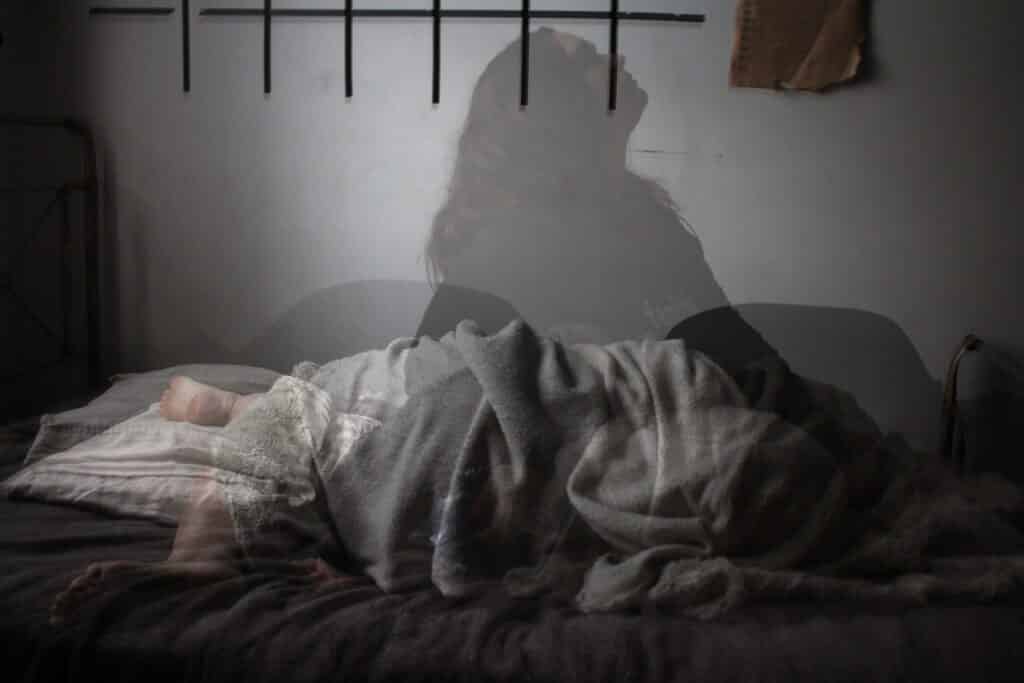In today’s society, myths about sleep and aging are passed around more than gravy at a Thanksgiving dinner.
Here’s the true scoop on sleeping when you’re older.
1. How does sleep change when you age?
Common misconceptions would have you believe that the older you get, the less sleep you need. Although developing children need more sleep than average, sleep requirements for adults remain reasonably constant regardless of age.
What does change are circadian rhythms that help dictate sleep patterns. It’s not uncommon for older adults to sleep and wake earlier as biological clocks regulating internal rhythms shift.
2. Why do seniors have difficulty sleeping or falling asleep?
The fragmented sleep often plaguing adults in their 60s and beyond can be due to a variety of factors. For instance, insomnia and unrestful sleep may stem from medication side effects or sleep disorders in the elderly.
Other problems like periodic limb movement disorder (PLMD) can make it nearly impossible to fall asleep when your legs and feet jerk, cramp, flex, and take on a life of their own. Restless legs syndrome, snoring and sleep apnea are other common culprits.

3. Should aging and sleep variations affect your nightly routine?
While the number of hours of sleep you need doesn’t change a lot the older you get, you may find your quality of sleep isn’t the same. That’s because as we age, our sleep becomes lighter and more fragile. As a consequence, we’re more easily awoken at night.
For aging adults, it’s more essential than ever to have proper sleep hygiene. Watch out for caffeine consumption after 2pm, too much screen time before bed, and light leaks in the bedroom. Something as simple as a light from a digital alarm clock can be enough to disrupt the production of melatonin—a hormone that helps you fall and stay asleep.
4. Do older adults really need eight hours of sleep?
Eights hours of sleep per night is often seen as the gold standard, although seniors may be tempted to think they need less. The reality is everyone’s sleep needs are different, but individual sleep requirements tend to fall between six and nine hours. Chances are, you’re not part of the one percent of short sleepers who need less than six hours of sleep.
Chronic sleep deprivation can cause various issues and diseases, including diabetes, obesity and mental distress. Make it a habit to get adequate sleep, so you can keep the doctor away.
5. What are the best sleep tips for older adults to get better sleep, according to science?
Searching online or asking friends for help on how to sleep better can yield unproven home remedies that, at best, have no effect and, at worst, cause serious health problems.
Follow these two of science-backed sleep tips to improve your sleep quality and have a healthier, happier, livelier YOU:
Exercise. No matter your age, exercise and physical therapy bring an array of benefits, including helping to alleviate conditions like sleep apnea, insomnia, and depression. More doctors are even prescribing exercise over medications. Talk to your physician before starting a new exercise regimen.
Nightly routines: Our bodies thrive on routines. Following a consistent sleep schedule and having a relaxing bedtime routine can clue your body into knowing when it’s time to nod off and, in general, diminish the impact of aging on sleep.
(Image via Unsplash)
Citations:
Hood, S., & Amir, S. (2017). The aging clock: Circadian rhythms and later life. Journal of Clinical Investigation,127(2), 437-446. doi:10.1172/jci90328
Kline, C. E., Crowley, E. P., Ewing, G. B., Burch, J. B., Blair, S. N., Durstine, J. L., . . . Youngstedt, S. D. (2011). The Effect of Exercise Training on Obstructive Sleep Apnea and Sleep Quality: A Randomized Controlled Trial. Sleep,34(12), 1631-1640. doi:10.5665/sleep.1422
Reid, K. J., Baron, K. G., Lu, B., Naylor, E., Wolfe, L., & Zee, P. C. (2010). Aerobic exercise improves self-reported sleep and quality of life in older adults with insomnia. Sleep Medicine,11(9), 934-940. doi:10.1016/j.sleep.2010.04.014
Wang, X., Bi, Y., Zhang, Q., & Pan, F. (2012). Obstructive sleep apnoea and the risk of type 2 diabetes: A meta-analysis of prospective cohort studies. Respirology,18(1), 140-146. doi:10.1111/j.1440-1843.2012.02267.x
Wolkove, N., Elkholy, O., Baltzan, M., & Palayew, M. (2007). Sleep and aging: 1. Sleep disorders commonly found in older people. Canadian Medical Association Journal,176(9), 1299-1304. doi:10.1503/cmaj.060792

